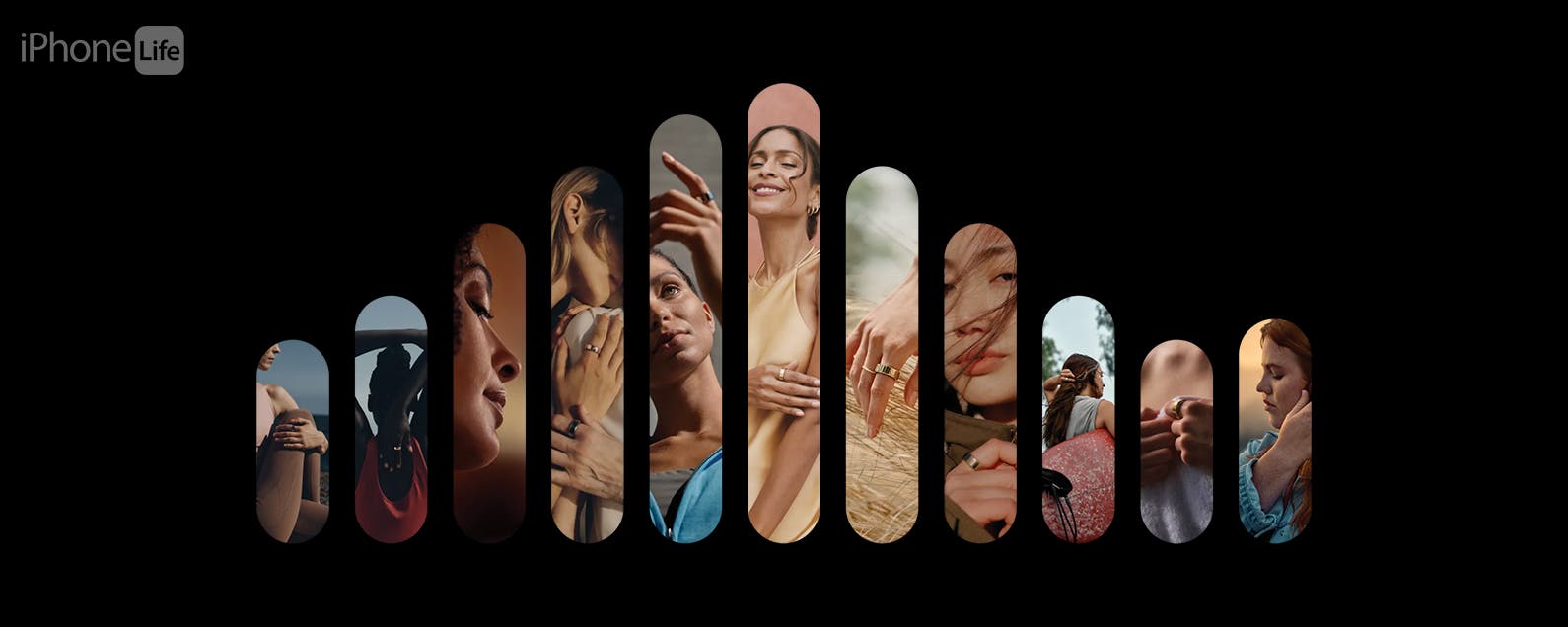Every morning for the past three months, I wake up wearing a shiny gold ring on my right pointer finger. If you look closely, you can see beams of red or green light leaking out the sides as it scans my heart rate, respiratory rate, and body temperature. I roll out of bed, grab my phone, and open the Oura app.
There, I see my daily health briefing. My Sleep and Readiness score give me a snapshot that helps me plan my activities for the day. Readiness score in the 70s? Perhaps I’ll work from home and go on a walk with my German Shepard. Readiness score above 80? Time to hit my high-intensity spin class! Next, I quickly approve the activities my ring detected in the last 24 hours—the quick walk I took over lunch and the afternoon pickleball session. Finally, I sync my data with the Natural Cycles app so I can see where I am in my cycle.
If I want to dig deeper, I can see a full breakdown of my night’s sleep, including the timing of REM and deep sleep. I’ve discovered how important those early hours of sleep are—all my deep sleep takes place before 2 a.m.! I can also see my Daytime Stress levels, resilience score (how you respond to physiological stress), and even my Chronotype (which calculates my body type’s preferred hours of rest and activity). All of this happens within a couple of minutes, and then I’m ready to go about my day. For more on the latest tech, be sure to sign up for our free Tip of the Day newsletter.
I decided to give Oura a try after years of wearing an Apple Watch. This decision came from a shift within me. My Apple Watch was great at encouraging me to do just a little bit more than I thought I could, whether that was training for a half marathon or reaching my stand goal for the day. As someone who has a tendency toward burnout, I realized I needed encouragement to slow down.
That’s where Oura Ring shines. In a refreshing change in psychology, Oura Ring puts sleep and stress reduction at the center of the story and helps me align my life choices around promoting that. It’s for people who want to be more in tune with what their body needs—choosing to push harder or rest in a more contextual, holistic way.
I’ll be honest, though, you may find the fitness tracking features lacking. While accurate with walks and pickleball, Oura has often missed spin, HIIT, or yoga classes altogether. My Oura (and my partner) always know when I fall asleep halfway through a movie, though!
The Oura Ring also helps me place more emphasis on my sleep hygiene. Alcohol and caffeine are not your friend when it comes to sleep. More than anything though, it’s taught me that stress is my biggest enemy. On days that Oura reports high levels of Daytime Stress, my Sleep Score suffers the most. A good wind-down routine that involves putting away my phone and computer before 9 p.m. along with general stress management techniques like thinking of five things I’m happy about before bed make the biggest difference to my score.
A word of caution—Use Oura as a tool to make healthy changes, but don’t let poor scores get you down. You, like me, may be using the Oura Ring because you’re struggling with sleep and stress. The first week I wore my ring, I slept even worse because I was so worried about getting a bad grade in the morning. I eventually had to kindly ask my partner to stop sharing his consistently-over-90 sleep scores.
Oura Ring Generation 3 (Starting at $299 + $5.99/month)
Pros:
* Easy setup (though you do need to have them send you a sizing kit before you order).
* Easy to use. Just wear it and check the app daily.
* Waterproof and long battery life (4–7 days) means you can always wear it.
* Realistic, helpful suggestions customized to you.
* Stress tracking. Oura can tell you when your stress has spiked using heart rate variability readings.
* Accurate sleep readings that match sleep lab polysomnography about 80 percent of the time.
* Fertility tracking integration with Natural Cycles.
Cons:
* Sleep score can cause sleep anxiety.
* The ring is bulky on smaller hands.
* Subpar fitness tracking.
* Expensive up-front with an ongoing cost.
Now I privately assess my own scores and use them as a tool for self-reflection—no comparing allowed!—and it gives me so many valuable insights that now I don’t like ever missing a day with Oura.
ReviewsSmartwatches & Fitness TrackersHealth Accessories(Third-Party Services/apps)Health & FitnessMaster your iPhone in one minute a day: Sign up here to get our FREE Tip of the Day delivered right to your inbox.
http://dlvr.it/T8T8Xp

No comments:
Post a Comment